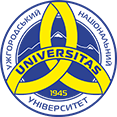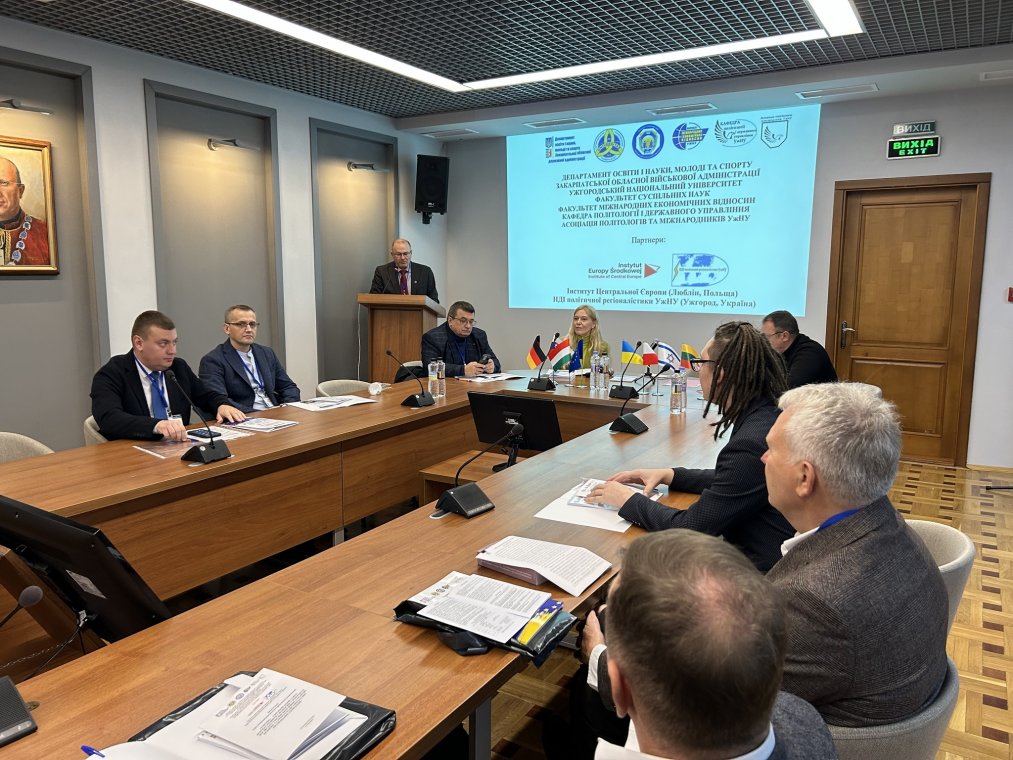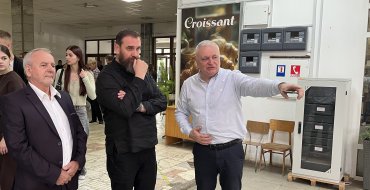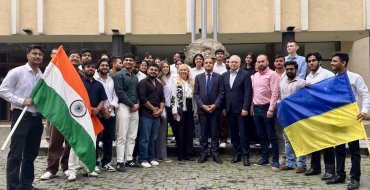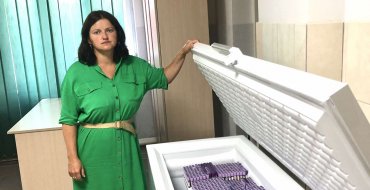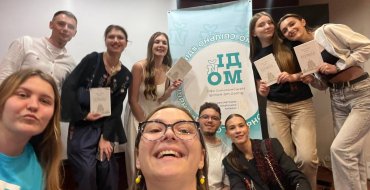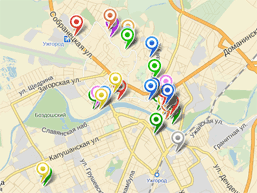Scientists discussed relations between Ukraine and the EU in the context of the Russian-Ukrainian war at an international scientific conference in UzhNU
On Friday, 20 October, Uzhhorod National University hosted an international scientific conference "Ukraine - European Union: the format of relations in the context of the Russian-Ukrainian war, security guarantees and reintegration of the temporarily occupied territories". This year was the 8th conference, initiated by the NGO "Association of Political Scientists and Internationalists of UzhNU", the Faculty of Social Sciences, the Faculty of International Economic Relations with the assistance of the Department of Education, Youth and Sports of the Transcarpathian Regional State Administration. The Institute of Central Europe (Lublin, Poland) and the Research Institute of Political Regionalism of UzhNU (Uzhhorod, Ukraine) also joined the conference. Scholars from leading universities and research centres in Ukraine, as well as scholars from Poland, Slovakia, Hungary and Romania took part in the conference.
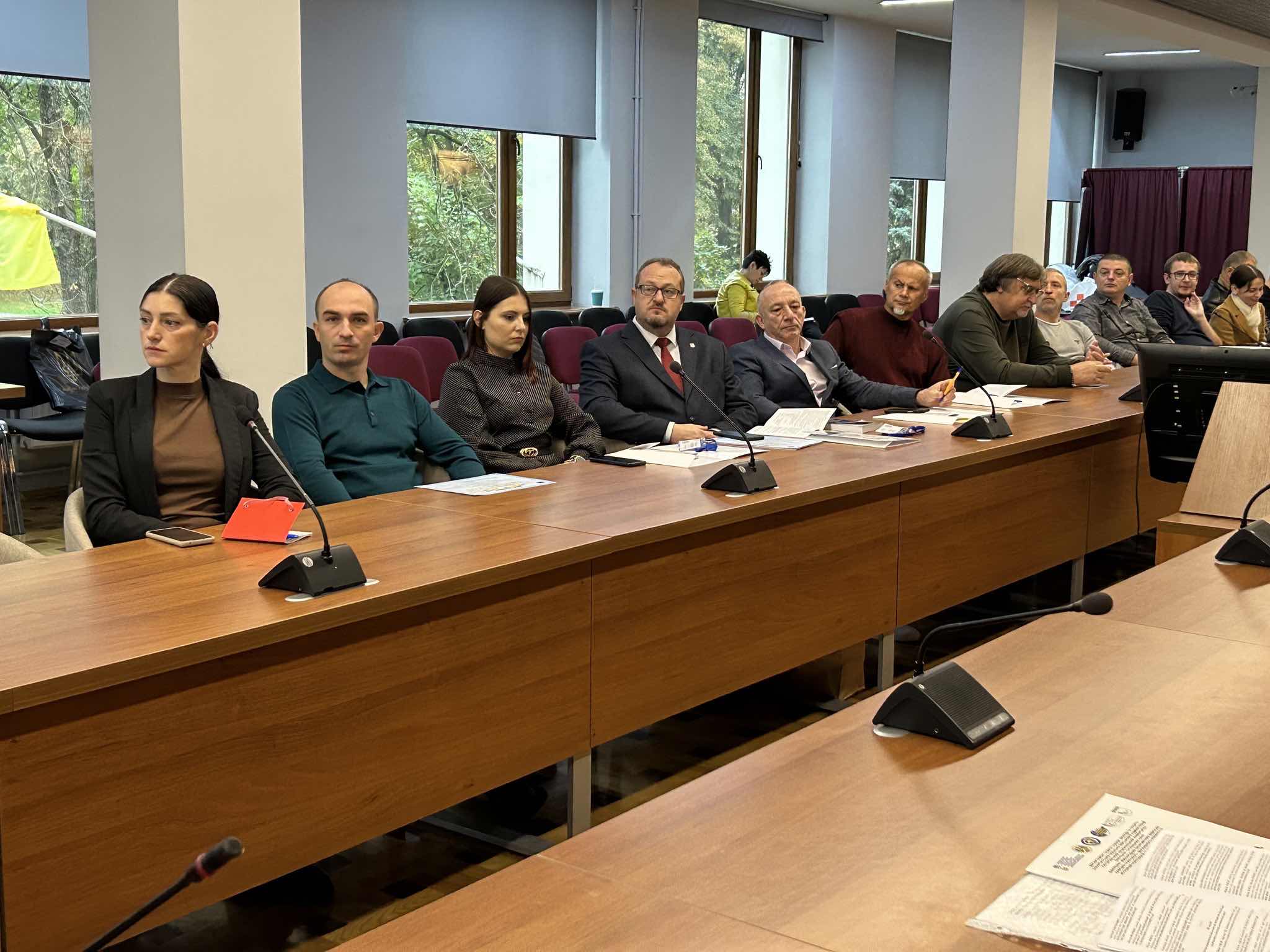
"Scholars from 12 Ukrainian regions, the leading countries of Central Europe, a total of more than 140 participants who have applied to participate in the conference and will participate in it in various formats. This interest of the participants is another confirmation that Ukraine's progress towards the EU has significant support from the Ukrainian community. I am confident that you will have interesting discussions and meet new people at the conference. I would also like to express my gratitude to our Armed Forces, thanks to which we are able to hold this scientific event," said Yuriy Ostapets, Dean of the Faculty of Social Sciences, at the opening of the conference.
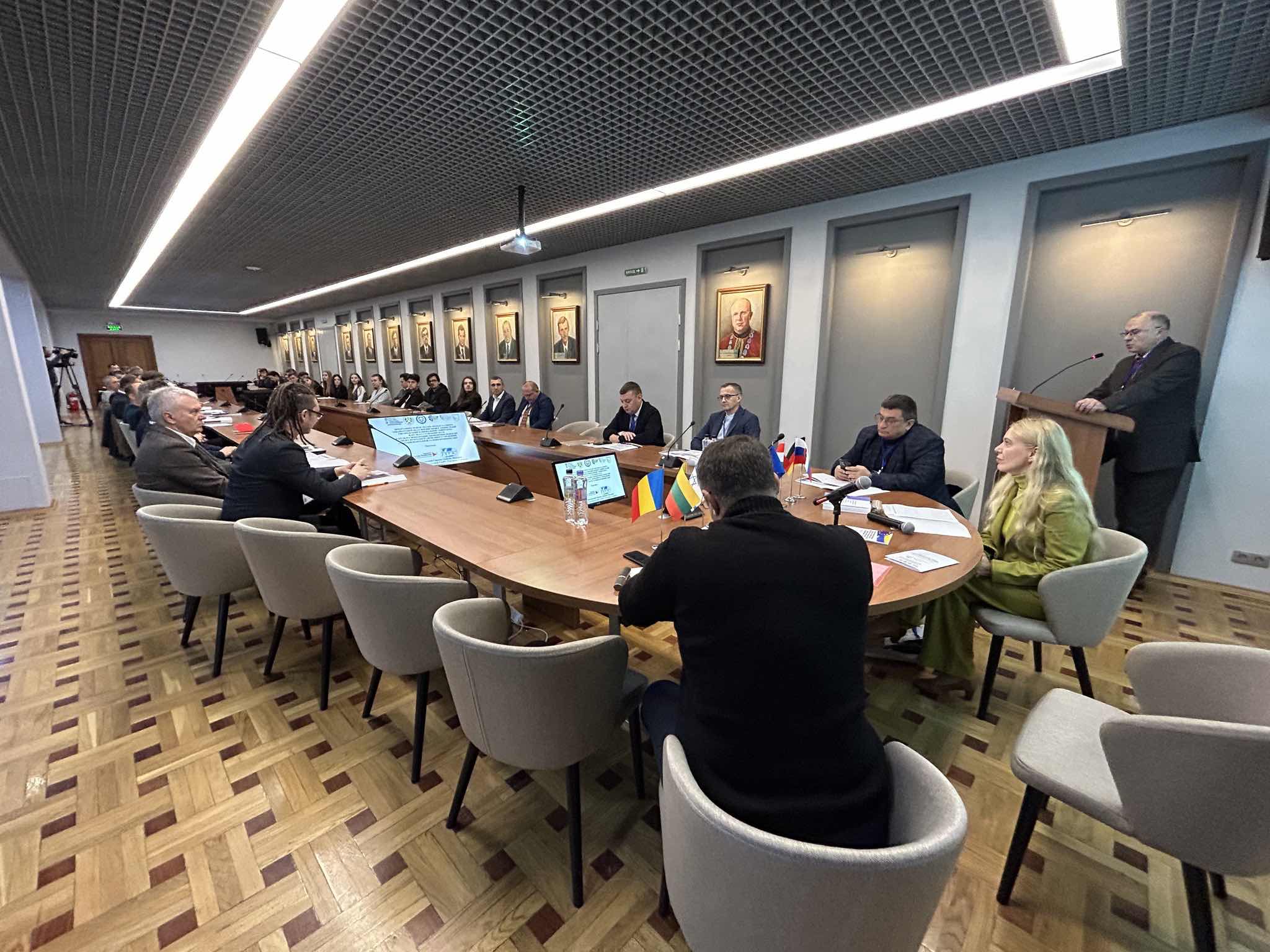
Ivan Myroniuk, UzhNU Vice-Rector for Research, said: "We thank everyone who could come to us from Slovakia and other countries, and I congratulate all our participants. The issue raised at the conference is not easy, and I wish you to outline the answers to the problems of ensuring the security of Ukraine now, after our victory and the reintegration of all our territories that should be in Ukraine."
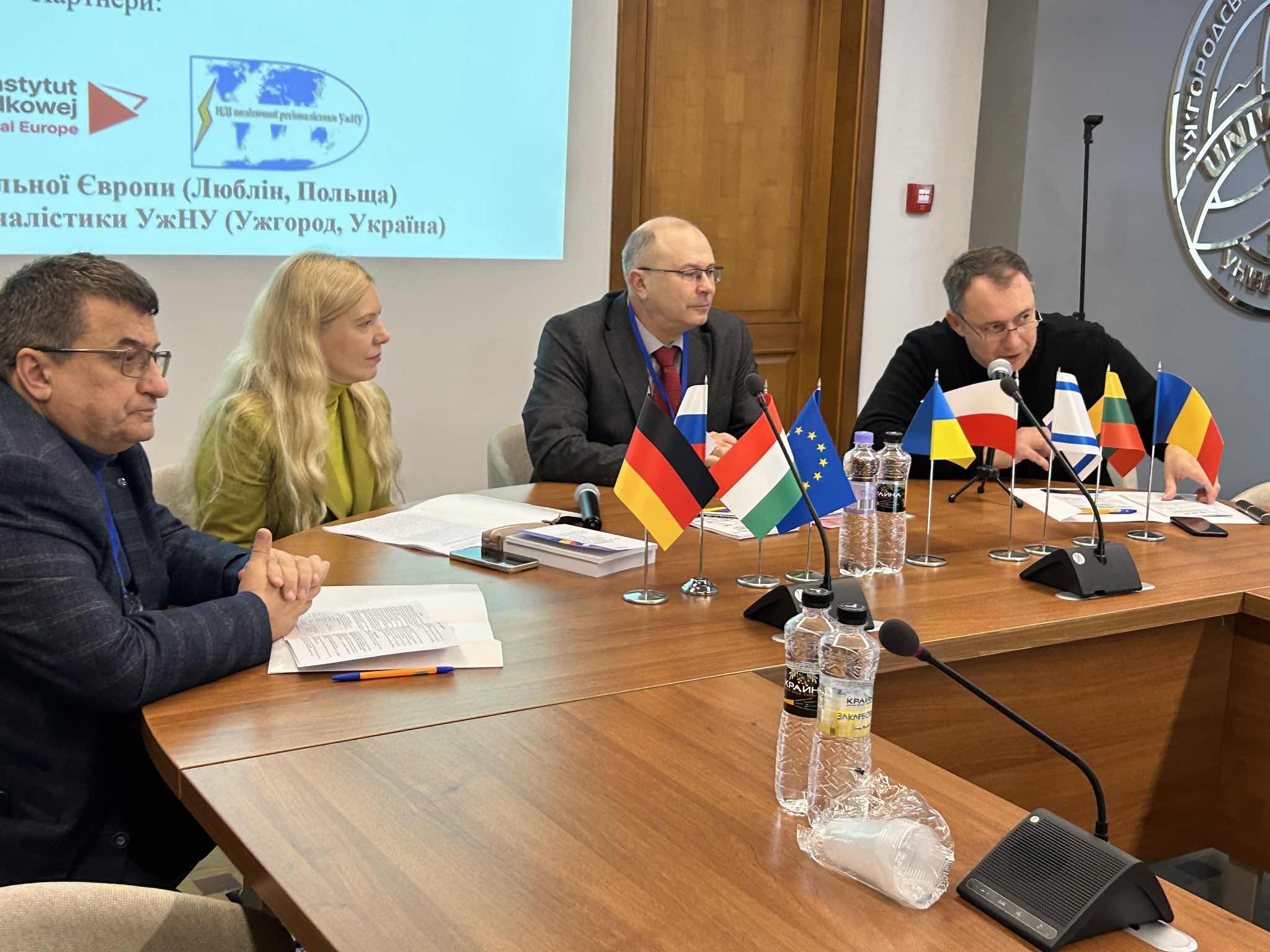
Vice-Rector for Scientific and Pedagogical Work Myroslava Lendiel also welcomed the conference participants: "We remember very well how we started this conference, with a very small environment at our department, then this conference became a faculty-wide conference, and then our colleagues from the Faculty of International Economic Relations and other faculties joined us. The fact is that European integration and the development of various aspects of EU development is one of the tasks we face. That is why UzhNU has a strong school of political scientists, internationalists, economists, and lawyers who deal with various aspects of European integration. I am also glad to welcome our guests from abroad, from the leading universities of Ukraine, and I think this is a great hope for building new inter-university projects. So I want to emphasise: Glory to Ukraine, everything will be fine!".
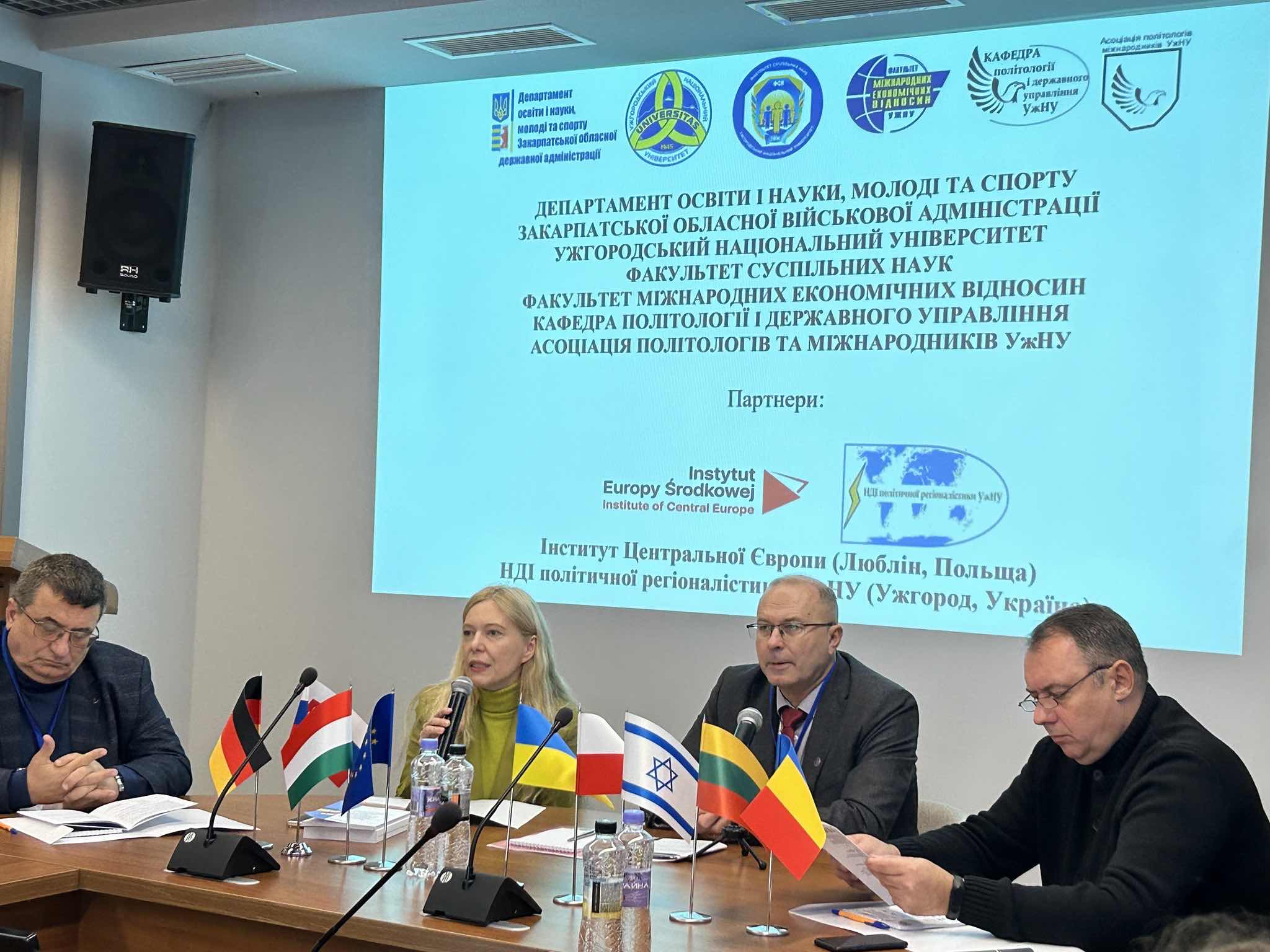
Mykola Palinchak, Dean of the Faculty of International Relations, said: "It's nice that the level of organisation and geography of the conference participants is growing every year. The relevance is undeniable, and I am convinced that during our work here, together with our guests, we will come up with many interesting ideas that will be implemented in the near future."
Anatoliy Kliuchkovych, Head of the Department of Political Science and Public Administration of UzhNU, also greeted the participants of the scientific event: "This conference has become a tradition, and it is important that it takes place despite the challenges we face. We have well-known scientists among the participants, but it is also equally important to have many young scientists and students, who, I am convinced, will also present their reports with dignity."
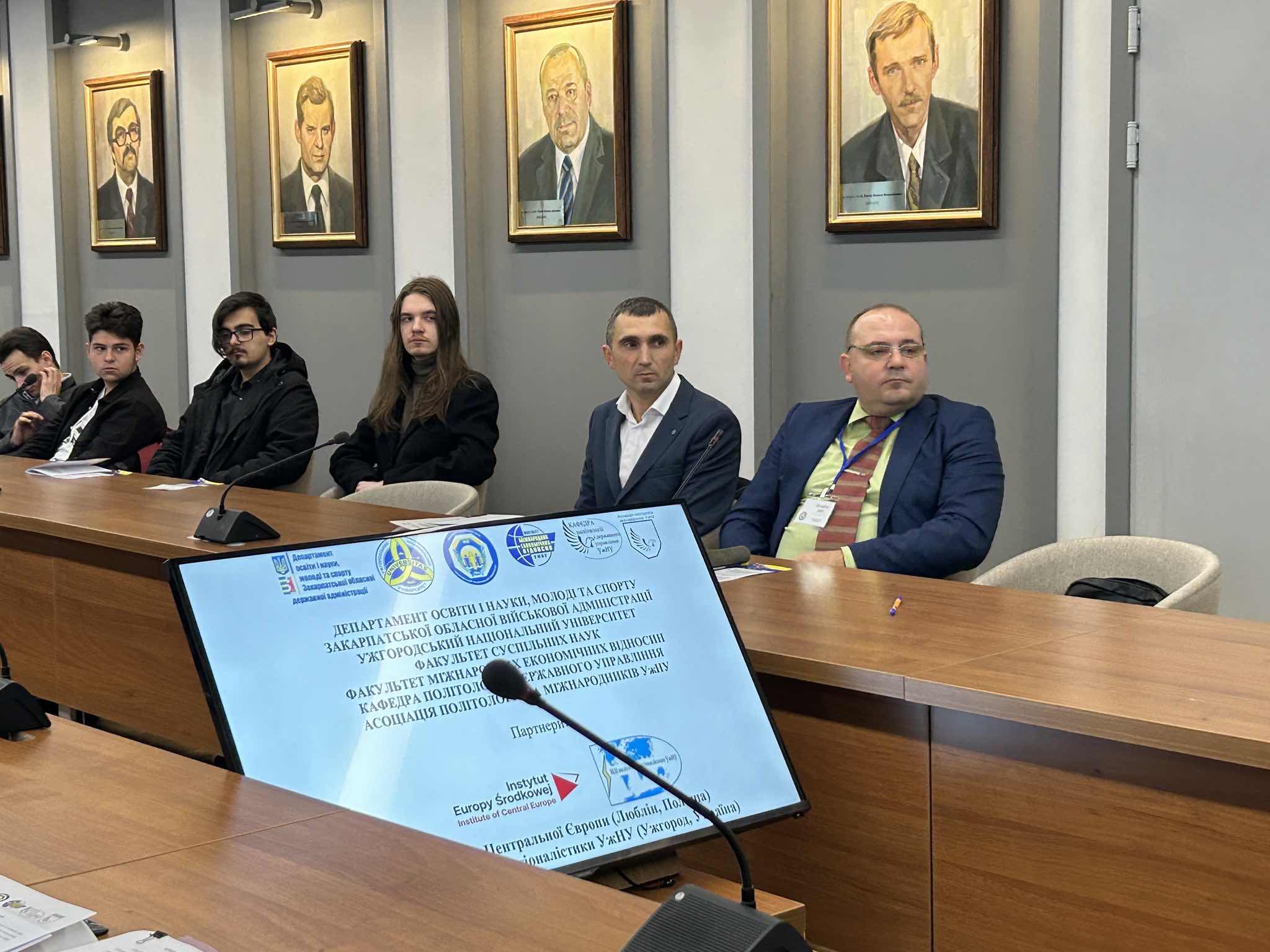
"I wish all the participants successful presentations, discussions and new acquaintances," said Lukasz Lewkowicz, a representative of the Institute of Central Europe (Lublin, Poland), in his opening remarks.
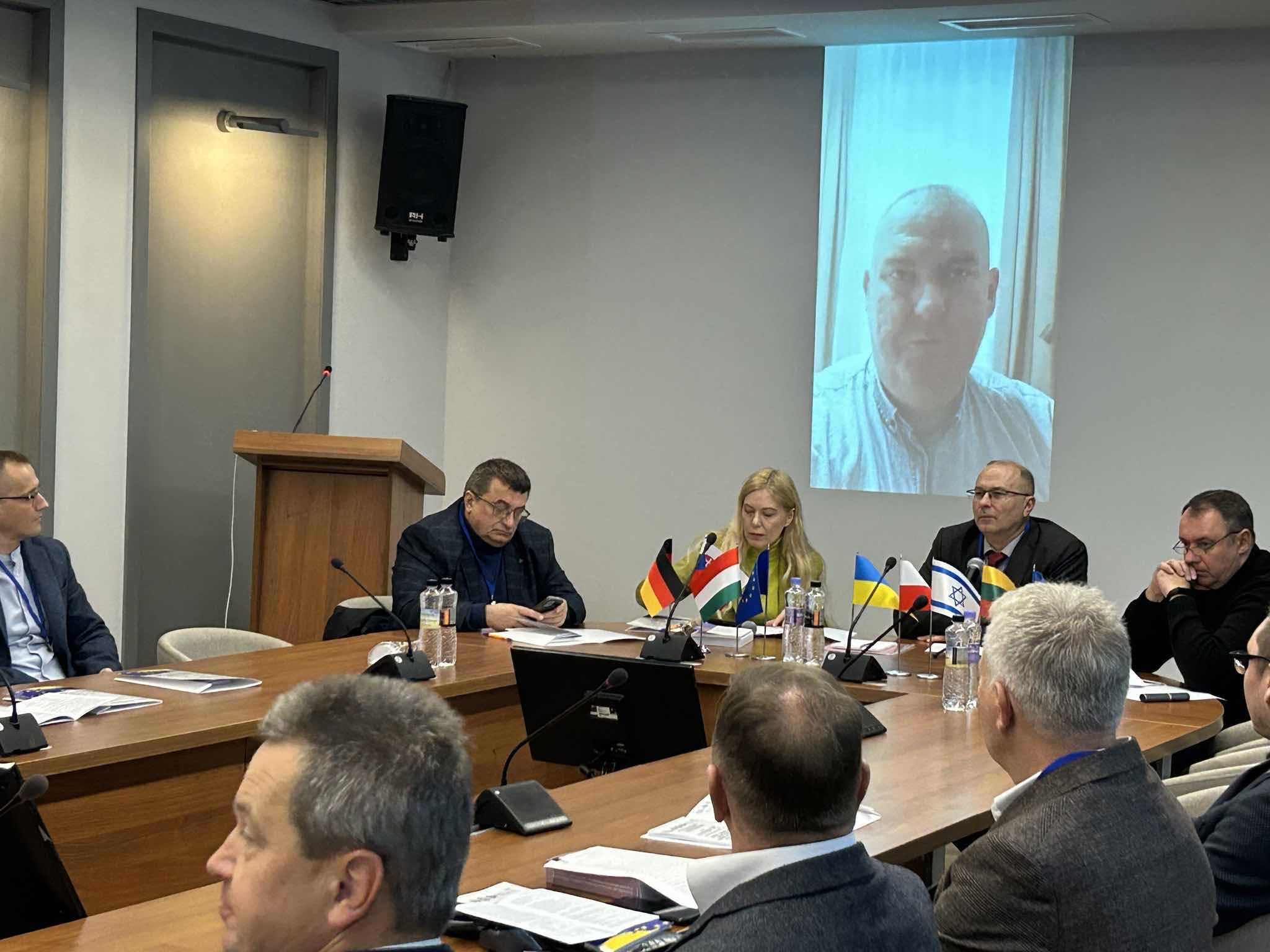
After the opening, the plenary session began. It was moderated by the Dean of the Faculty of Social Sciences, Professor Yurii Ostapets. As part of the meeting, Professor Myroslava Lendiel, Professor of the Department of Political Science and Public Administration of the Faculty of Social Sciences, Vice-Rector, made a thorough report "Considerations on the Regional Sustainability of Central Europe in the Context of Ukraine's Preparation for Accession to the European Union". Another interesting presentation was made by Anatoliy Kruglashev, Head of the Department of Political Science and Public Administration, Director of the Research Institute of European Integration and Regional Studies at Yuriy Fedkovych Chernivtsi National University, entitled "Changing the Ukraine-EU Agenda: from 'Together with Europe' to 'Together in Europe'". Based on empirical research, Anatoliy Romaniuk, Head of the Department of Political Science, Professor at Ivan Franko National University of Lviv, spoke about the crisis of political parties in Ukraine.
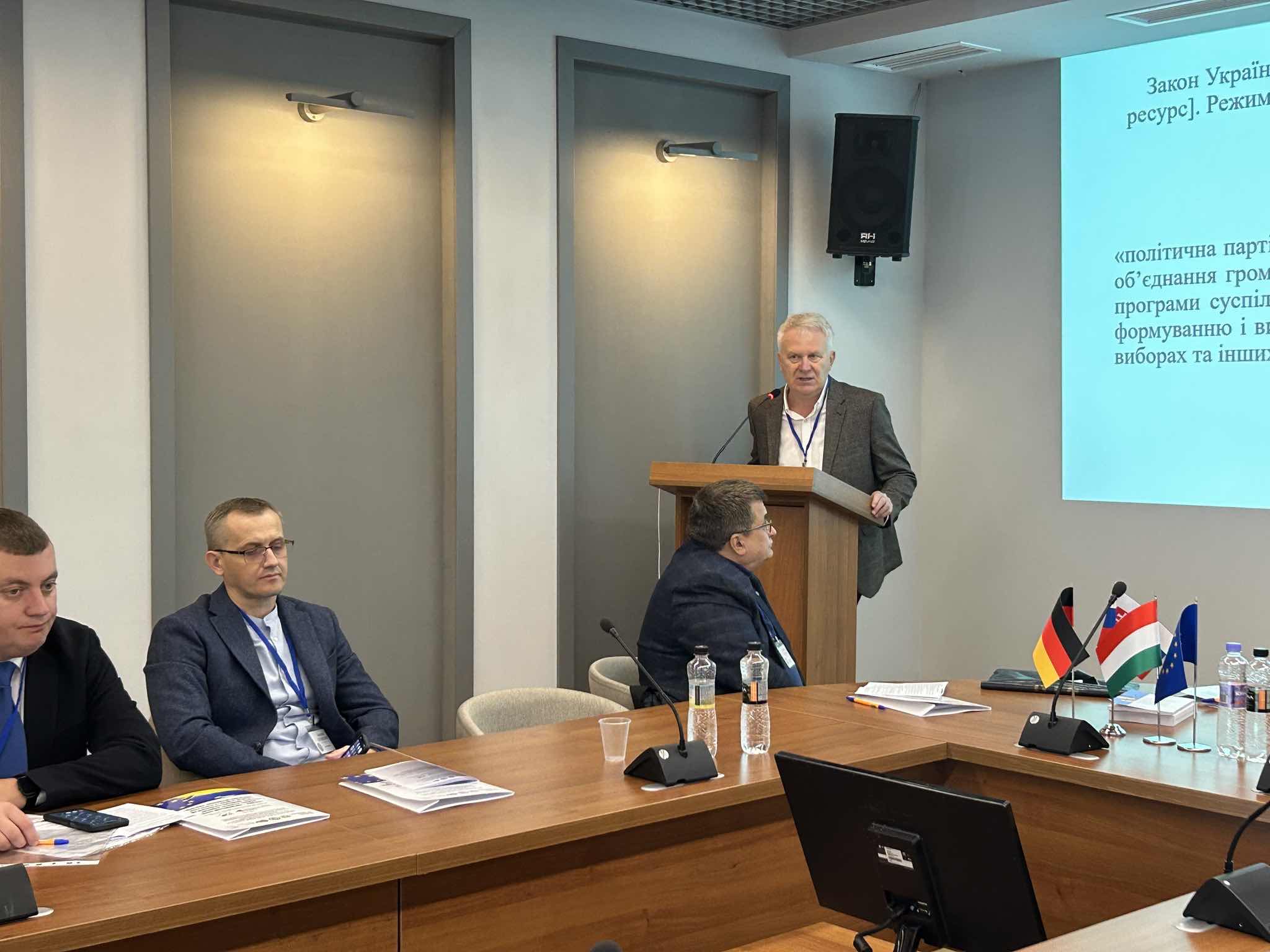
Svitlana Koch and Yulia Uzun, professors of the Department of Political Science at the I.I. Mechnikov Odesa National University, spoke about Bulgaria's affirmative action policy towards "foreign Bulgarians".
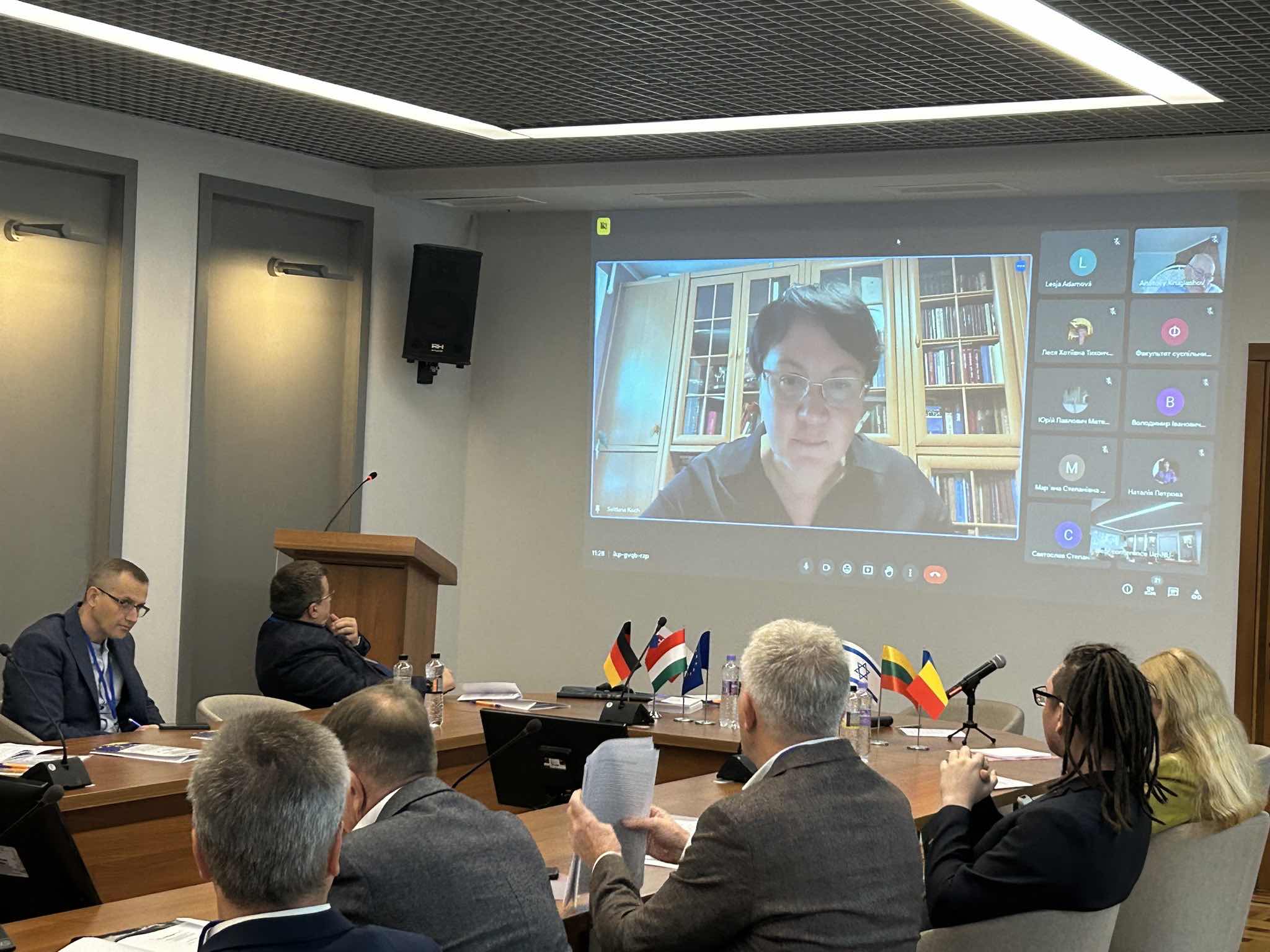
Oleksandr Bertolon, PhD student of the Department of Political Science and Public Administration, Deputy Chairman of the Board of the NGO "Association of Political Scientists and Internationalists of UzhNU", presented a joint report with Volodymyr Hira, Associate Professor of the Department of Political Science and Public Administration, entitled "The Problem of Legislative Support for the Rights of National Minorities in Ukrainian-Hungarian Political Relations in the Context of Ukraine's Euro-Atlantic Integration".
In his speech, Alexander Bertolon stressed that the purpose of organising the international event was to provide an opportunity for experts to discuss how to facilitate the process of Ukraine's fulfilment of the criteria for starting negotiations on EU membership.In particular, in terms of ensuring the rights of national minorities, in the light of the criticisms expressed by neighbouring states (Hungary, Romania) in this area.
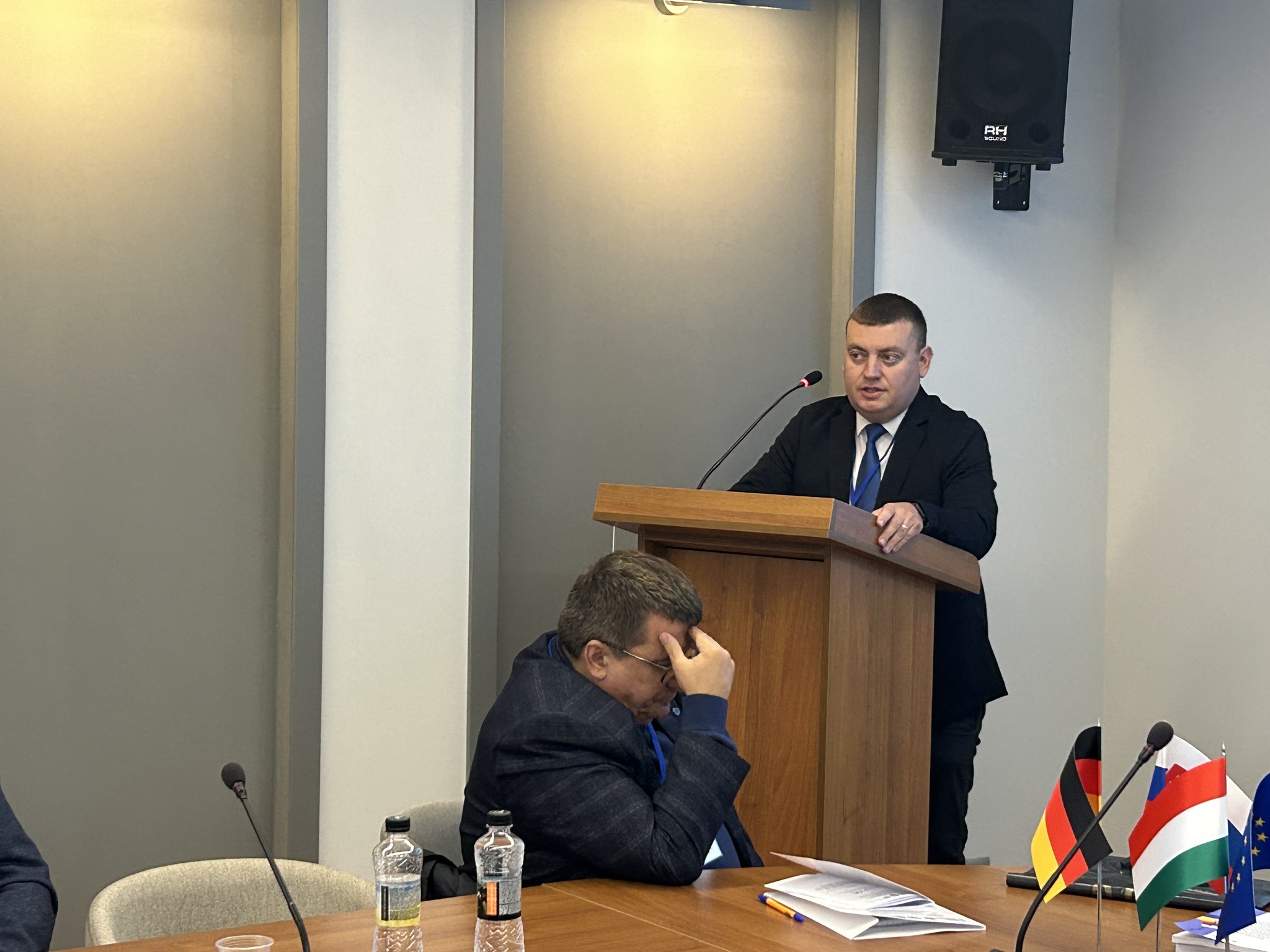
In his report "Ukraine in the Slovak election campaign", Stefan Izhak, PhD, a postgraduate student and researcher at the University of St. Cyril and Methodius in Trnava (Slovakia), analysed the attitudes of the main political parties that participated in the Slovak election campaign in September 2023 to the assistance to Ukraine and Ukrainian refugees based on sociological research data.
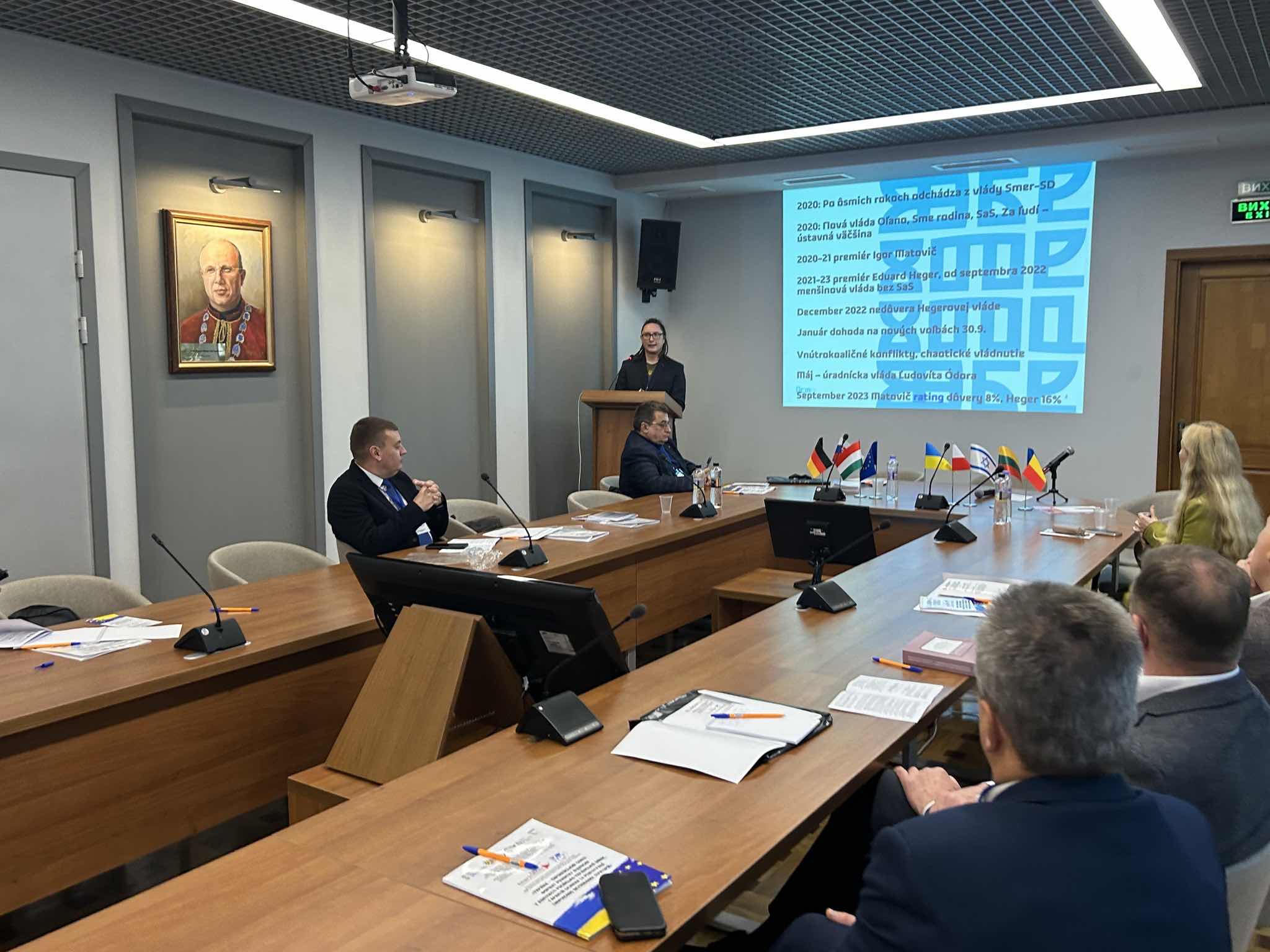
The plenary session was followed by a presentation of the scientific publications of the conference participants, moderated by Marian Tokar, Director of the Research Institute of Political Regionalism of UzhNU, Professor of the Department of Political Science and Public Administration of the Faculty of Social Sciences.The event featured 16 textbooks and monographs authored by Ukrainian scholars.
The results of the international collective project "Secure and Inclusive Border between Slovakia and Ukraine" (SIBSU) were also presented.This publication was presented by Alexander Duleba, Advisor to the Prime Minister of Slovakia, analyst at the Slovak Foreign Policy Association (SFPA), and Vice-Rector Miroslava Lendiel.
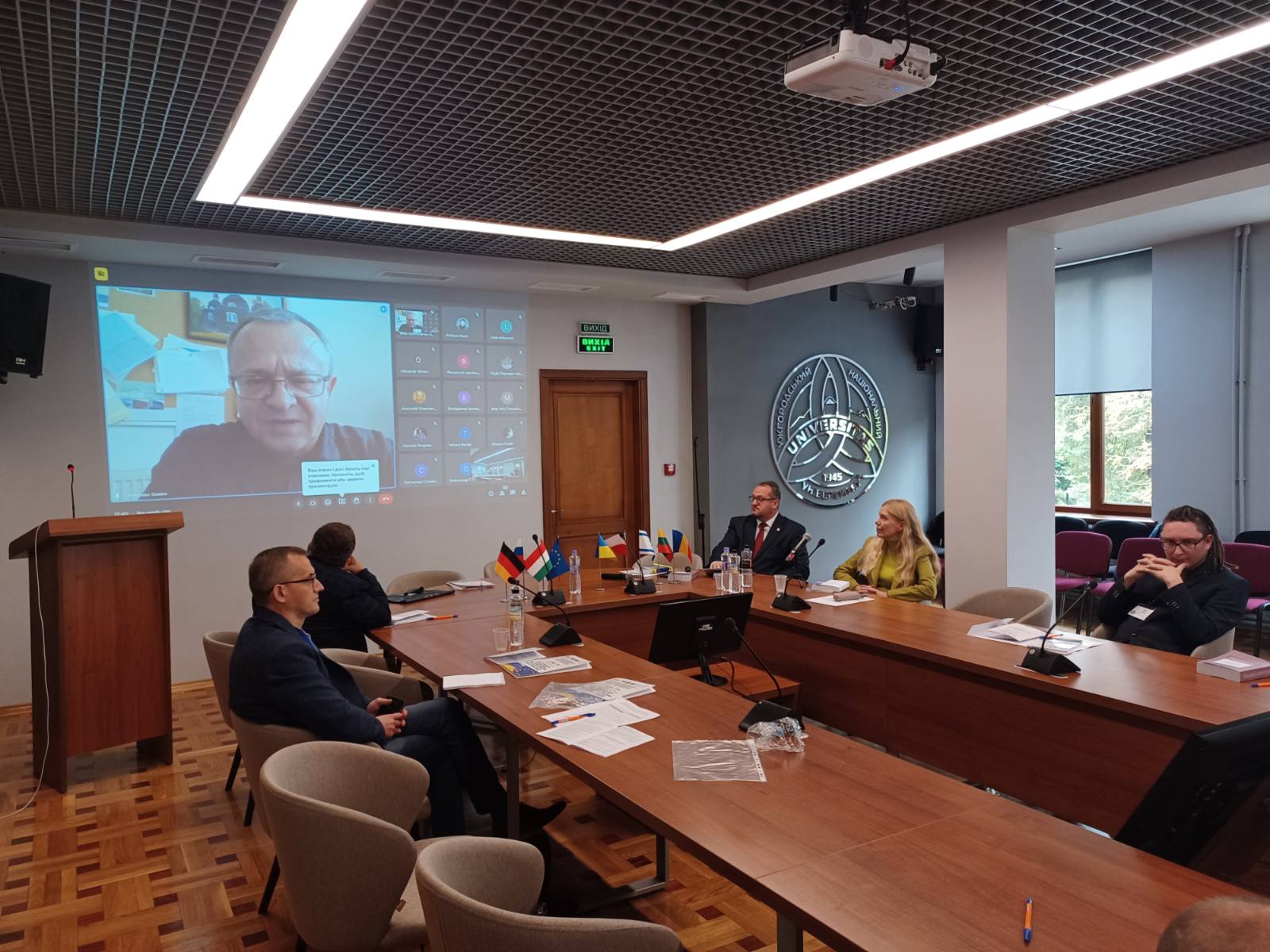
Then, according to the conference scenario, it was time for breakout sessions.A total of six panels were organised to discuss the Russian-Ukrainian war, its causes, course and consequences for Ukraine and Central Europe.They considered the change in geopolitical status, international relations, diplomatic, military and financial assistance to Ukraine, public administration relations and the peculiarities of interaction between the government and society in the war and post-war period.
They also touched upon ethno-political security and stability in Central Europe, issues of Ukrainian society under martial law: the development of civil society, volunteering, refugees and internal migration, as well as education, science, culture and religion as factors in the formation and preservation of national identity.
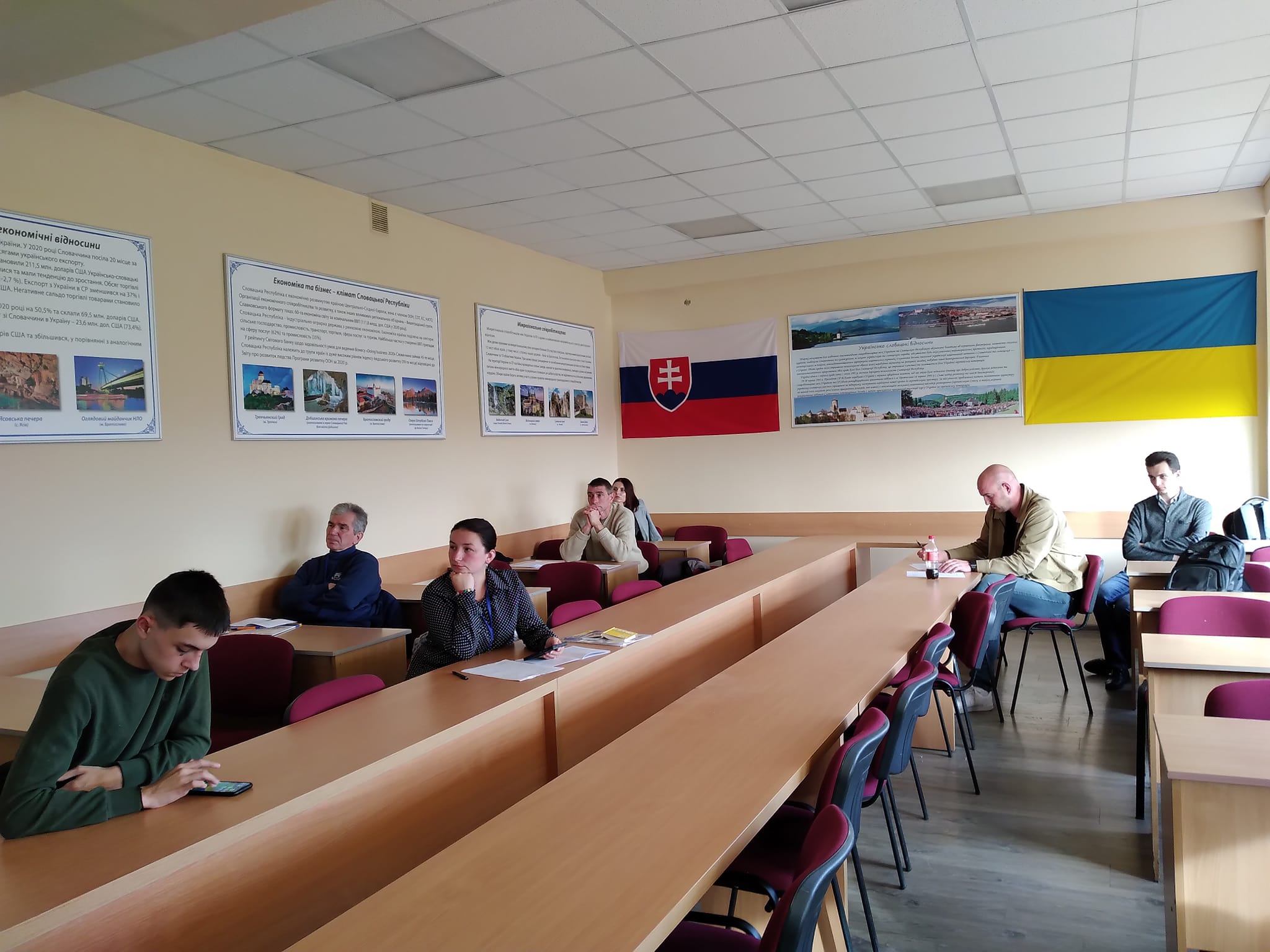
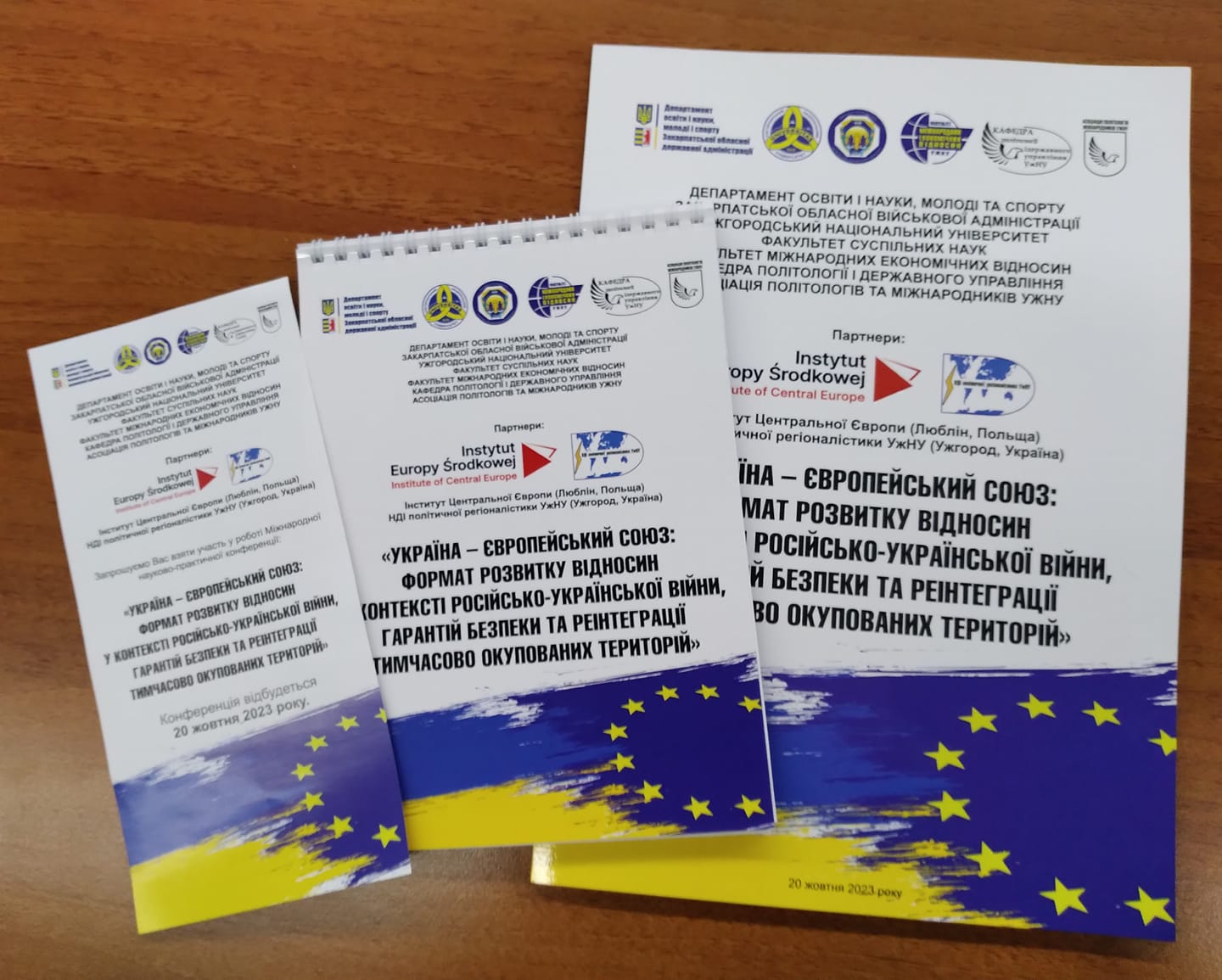
A collection of printed materials will be published based on the results of the conference.
